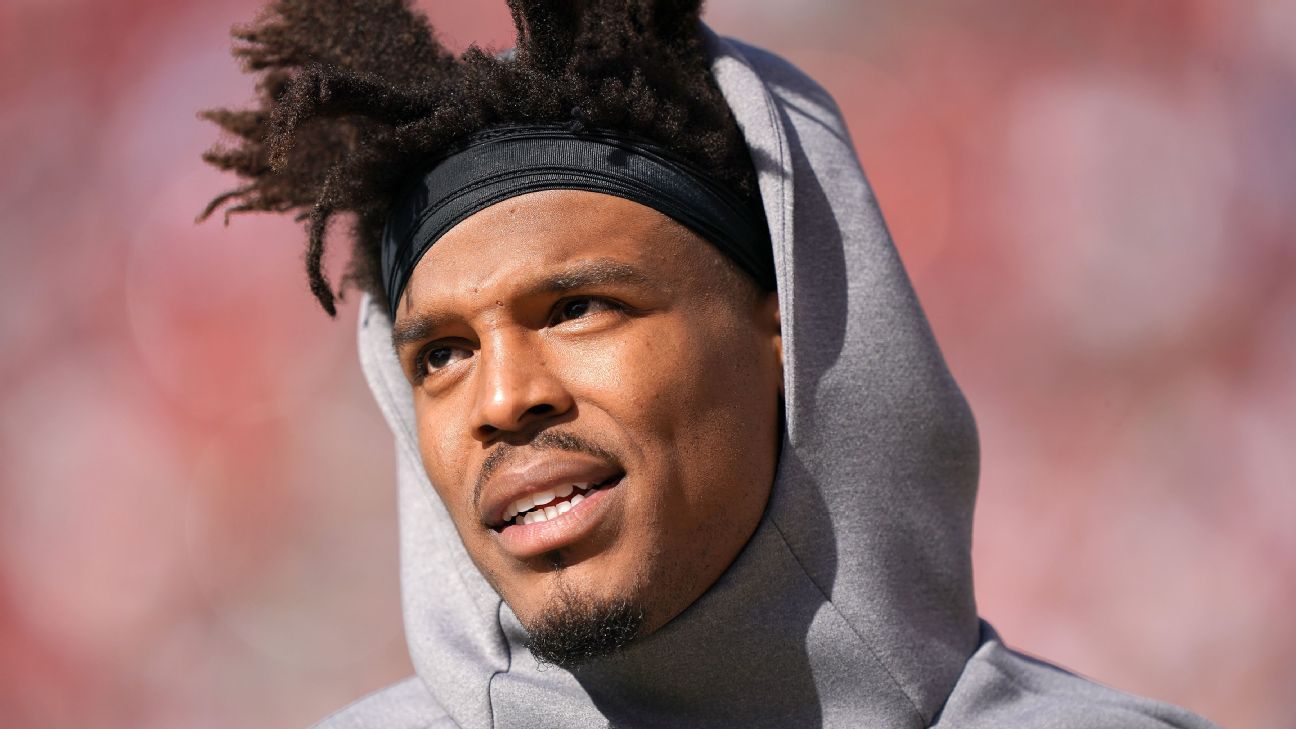If Cam Newton is to succeed Tom Brady as starting quarterback of the New England Patriots, he’s going to have to earn the job in training camp. Bill Belichick stopped decisively short of naming Newton the team’s QB1.
“That spot is the same as all the other spots on the team. We have a long way to go. We’ll see how things turn out,” Belichick said Friday in his first public remarks since Newton signed with the team. “I can’t control how players perform; that’s up to them. We’ll give everyone an opportunity and see what happens. I don’t know.”
Belichick has been consistent with that type of approach in his 20 seasons as Patriots coach, although there was no question who would be starting at quarterback once Brady seized the top job in 2001, helping the franchise to its first of six Super Bowl championships.
Brady’s free-agent departure to the Tampa Bay Buccaneers in March has created a mammoth void that Newton — based on career résumé — is the leading candidate to fill after agreeing to a one-year contract with the club in late June.
“We spent quite a bit of time with Cam, [had] a number of different people, and a number of different conversations, just trying to see how the fit would be. It was very positive on our end. I’m glad it worked out,” Belichick said.
Newton’s primary competition will be 2019 fourth-round pick Jarrett Stidham, a fellow Auburn alum. Brian Hoyer, an 11-year veteran, is also on the depth chart alongside undrafted free agent Brian Lewerke of Michigan State.
Stidham served as the Patriots’ top backup last year, and he helped organize throwing sessions with receivers in suburban Boston for several months in the offseason. Once Newton officially joined the Patriots, he connected with some of the team’s pass-catchers in Los Angeles over the last month, such as Julian Edelman and 2019 first-round draft pick N’Keal Harry.
But Newton has ground to make up after missing the team’s virtual offseason program during the coronavirus pandemic.
“The meetings were beneficial for all of us — for the players, the staff — kind of bringing things together. I felt like we did what we could do. We got a lot out of the opportunities we had,” Belichick said, acknowledging they were different from being able to practice on the field.
As for how the Patriots will build a playbook without naming a starting quarterback, Belichick said it will be the same as it has been over the first 20 years of his tenure.
“You set up a general structure that you implement. Everybody needs to learn certain fundamentals and certain basics. Every player, no matter how long he’s played — whether it’s two years or 20 years — there is still a basic progression to training camp at that player’s position,” Belichick said. “That’s where we’re going to start. That, in my opinion, is what needs to be done, regardless of who the player is or what position he plays. …
“I don’t think you start off in training camp with your football team putting in a triple-reverse, or double-reverse pass, or things like that which might highlight a particular player. Those are the kind of things that come down the road a little bit.”
While the Patriots’ plans to replace Brady will be closely watched, so too will how the team adapts to having an NFL-high six players opt out of the 2020 season, a group headlined by linebacker Dont’a Hightower, safety Patrick Chung and starting right tackle Marcus Cannon.
Asked his reaction to the opt-outs, Belichick said, “I respect all of them. I talked to those guys and they explained their situation. They had to make the decision that was best for them and I totally respect and support it 100 percent.”
Belichick added that he was unsure if there would be more players who might decide to opt out of the season.
“Everybody has to make their own individual decisions on that. They have to weigh their own situation,” he said. “Each one of us is unique and we all have different lives, situations, families, environments and so forth and so on.”
